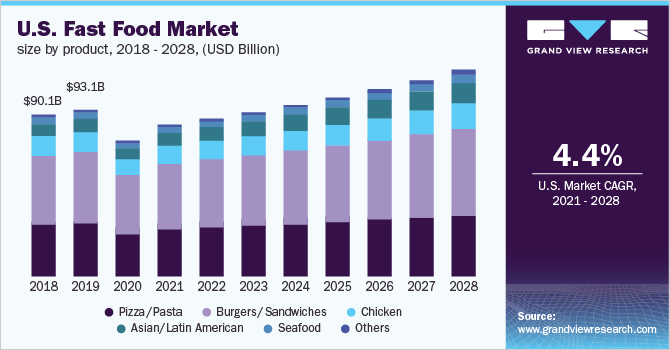Highly-processed food is bad for your health, but it especially impacts poorer communities
Fast food that is highly processed can produce a wide variety of severe disorders ranging from cardiovascular disease, depression, type 2 diabetes, anxiety, and mental disorders, according to a new study published in the February 2024 issue of the BMJ.
As more people worldwide consume processed food, such as fast foods and prepared meals that have a long shelf life, there are increased incidences of a wide range of physical and mental disorders.
The study examined evidence from 45 meta-analyses that covered almost 10 million participants worldwide and found “direct associations between exposure to ultra-processed foods and 32 health parameters including mortality, cancer, and mental, respiratory, cardiovascular, gastrointestinal, and metabolic ill health.” This includes high incidences of obesity, type 2 diabetes, and mortality.
The study is critical to Black and Latino communities targeted with more advertising for fast foods over the past decade. “U.S. food companies disproportionately target Black and Hispanic consumers with marketing for high-calorie, low-nutrient products including candy, sugary drinks, snacks, and fast food. The more than one billion spent on this targeted marketing exacerbates inequities in poor diet and diet-related diseases in communities of color, including heart disease, obesity, and diabetes,” according to a November 2022 report by the Rudd Center for Public Policy. Numerous other academic studies have also found similar results.
Ultra-processed foods were ready-to-eat, including packaged snacks, carbonated soft drinks, instant noodles, and ready-made meals. These products are characterized as industrial formulations primarily composed of chemically modified substances extracted from foods and additives to enhance taste, texture, appearance, and durability, with minimal to no inclusion of whole foods.”
Accompanying the vast popularity of processed food were changes in the food industry, including popular taste and the need for cheaper foods with a longer shelf life. These processed foods generally include more salt, lower fiber, more sugar, and saturated fat, with lower levels of dietary fiber, micronutrients, and vitamins.
Today, the fast-food market is a global behemoth. Statistica estimates that the market size of the QSR industry in the U.S. was just over $322 billion in 2021, and that figure should grow to over $331 billion in 2022. About five million people work in the industry, according to IBIS World. 
While many factors are driving this growth—convenience, speed, price, and easy accessibility—the problem is that the food contains too many preservatives, sugar, salt, and other additives. When eaten, “emerging evidence suggests” that these foods produce changes to the gut microbiomes and increased inflammation. Gut microbiomes, found mainly in the intestines and skin, are the bacteria, viruses, and fungi the body needs for digestion, heart health, the immune system, and weight control.
The ingredients in fast food cited in the study use “chemically manipulated cheap ingredients, such as modified starches, sugars, oils, fats, and protein isolates, with little if any whole food added, made palatable and attractive by using combinations of flavours, colours, emulsifiers, thickeners, and other additives.”
Cheap Foods Are Designed To Be Addictive
The combination of these cheap ingredients makes these foods more addictive because they are “engineered to be highly desirable, combining sugar, fat, and salt to maximise reward, and adding flavours that induce eating when not hungry.” The fast food industry has also borrowed advertising techniques from the tobacco industry to make them more addictive by selling them as super-sized meals and promotional meal packages.
The academic institutions that conducted the study included Johns Hopkins University (Baltimore, Maryland), Monash University (Melbourne, Australia), Sydney School of Public Health, Deakin University(Victoria, Australia), Université Sorbonne Paris Nord and Université Paris Cité, Center of Research in Epidemiology and Statistics (Bobigny, France), Centre for Adolescent Health, Murdoch Children’s Research Institute, (Melbourne, Australia), and the School of Biotechnology (Dublin, Ireland).
A primary goal of the study was to provide evidence that would help public health officials and the public find the connection between ultra-processed food and its link with chronic diseases. The popularity of ultra-processed food has been linked to an increase in obesity. According to the World Health Organization,” Over the past several decades, the incidence of obesity has tripled worldwide.” The study reviewed 45 previous published analyses that included mortality, cancer, and mental, respiratory, cardiovascular, gastrointestinal, and metabolic health outcomes.
In an editorial accompanying the study’s release, the BMJ editors called for world authorities to develop policies that address the spread of ultra-processed food as a world health crisis. “It is now time for United Nations agencies, with member states, to develop and implement a framework convention on ultra-processed foods analogous to the framework on tobacco,” the editorial said.











